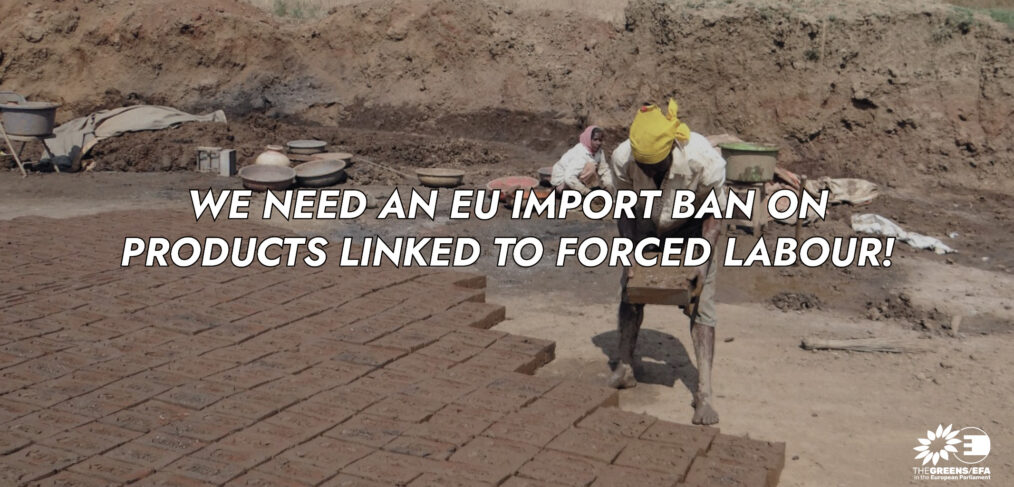
Towards an EU import ban on forced labour: new study
The European Parliament has called for a new EU instrument that allows for import bans on products related to severe human rights violations such as forced labour or child labour. This tool could be a complementary measure to the EU legislation on corporate human rights and environmental due diligence along supply chains which is currently being developed. The landmark due diligence law is expected to introduce requirements for all companies operating in the EU to take steps to prevent and address human rights and environmental harm along their value chains. The law should also give victims possibility to bring companies to court in Europe when harm occurs. However, certain products stemming from severe human rights violations should not enter the EU market at all. Therefore, in addition to this upcoming due diligence law which is focused on company behaviour, a related instrument that focuses on products is needed, allowing for restrictions or bans.
In this paper, we examine different options for an EU mechanism. In particular, we consider whether the import bans could be introduced via:
-
- o EU foreign policy, i.e. the new EU Human Rights Sanctions mechanism
- o amending our Free Trade Agreements and other trade mechanisms
- o a new Internal Market instrument
- o a new instrument with a trade legal basis
A brief examination of each option’s pros and cons leads to the conclusion that a new EU instrument with a trade legal basis would be preferred. Such instrument could draw heavily on previous instruments such as the Regulation protecting intellectual property rights. A deeper evaluation and analysis of what works well and what doesn’t (e.g. the absence of remediation required) in the US Tariff Act can lead to more detailed options for an EU approach.
The import ban instrument would be a complementary measure to the upcoming EU due diligence law, giving the EU an additional tool to guarantee that no products being sold in the EU are tainted with grave human rights abuses. It would allow us to immediately stop goods at our borders when we have reasonable suspicion that they are made with forced labour. The onus would then be on the company in question to prove that this is not the case, or to take action to remedy the situation on the ground before these products are allowed in again.
Experience from the US shows that such bans can be extremely effective and lead quickly to remedy for workers. However, we need to learn from the lessons of the US approach regarding the things that have not worked so well: we need do it in a more transparent, remedy-centred way, that focuses on the impacts for people, and is not a hidden protectionist tool. Conditionality for the lifting of bans or easing of restrictions should always be that companies take measure to improve the situation on the ground; in this regard the remediation of victims should always be prioritized. The instrument needs to be therefore carefully designed and applied.
Download the full study here.
